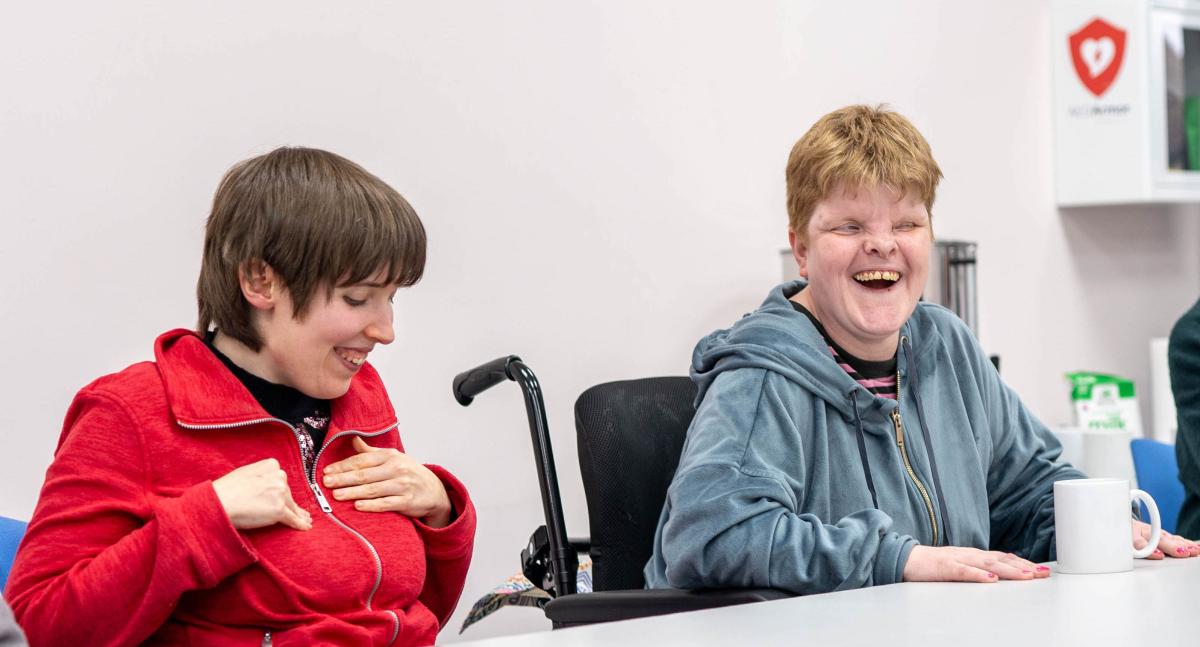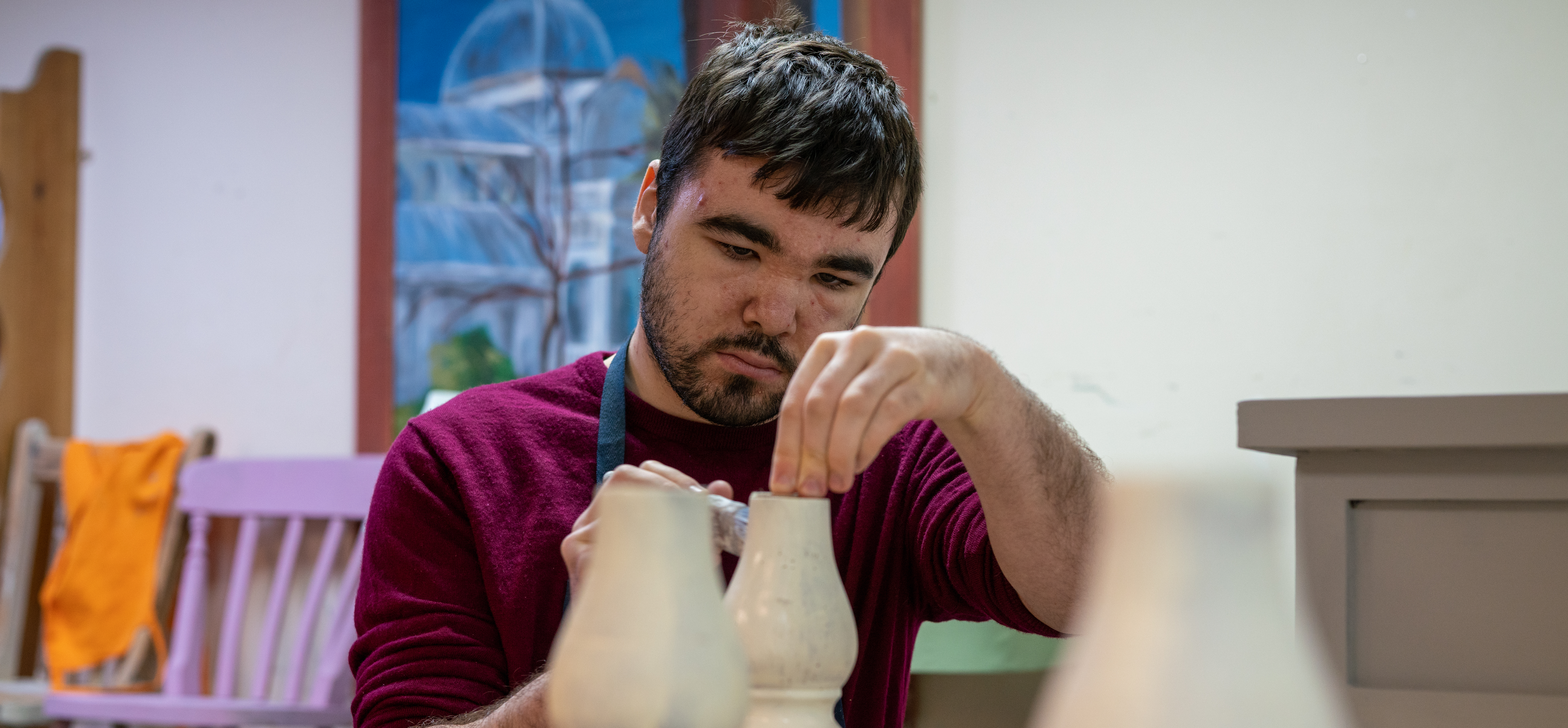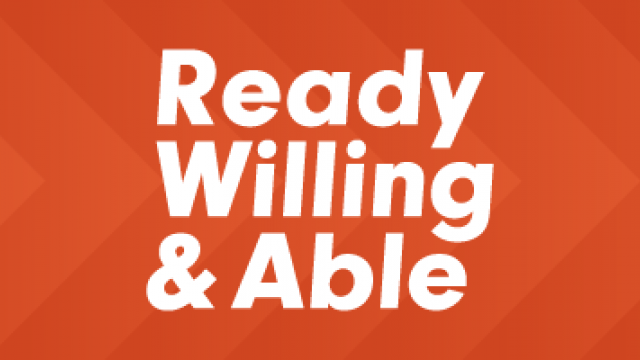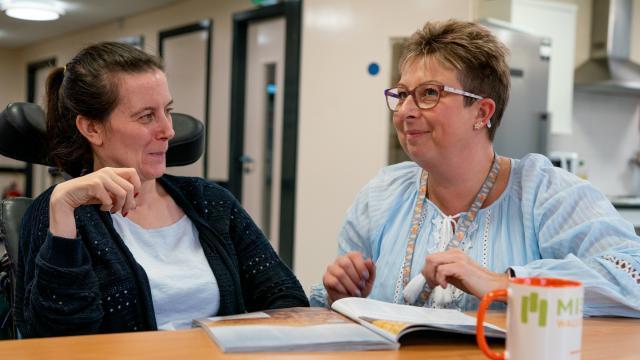
How to make job interviews more inclusive
By Harley Teagle, Supported Employment Coach
Interviewing someone is always a bit nerve-wracking, but for those with autism, learning disabilities, or sight loss, the process can be even more challenging. The good news is that there are simple steps you can take to make the interview process more inclusive and accessible, setting everyone up for success.
The golden rule throughout is to always be proactive and thoughtful about how to adjust the environment, communication style, and expectations.
1. Offer a pre-interview visit
One of the best ways to help a candidate feel more at ease before the interview is by offering a pre-interview visit to the venue. This visit allows the candidate to get a sense of the space, which can reduce anxiety on the big day. They can see where they’ll be sitting, get familiar with the layout, and feel more prepared overall. Knowing exactly where and how the interview will unfold can make a huge difference for someone who might otherwise feel overwhelmed by the unknown.
2. Set clear expectations
People with autism, learning disabilities, and sight loss often feel more comfortable when they know what to expect. It's helpful to outline the structure of the interview beforehand. This includes explaining how long the interview will last, what kind of questions will be asked, and any other details they might need. Providing this information in writing is a great idea, and using a visual timetable or diagrams can be especially helpful. It’s important to also discuss this information verbally to ensure the candidate feels well-informed and prepared.
3. Ask about accessibility requirements
Check with all your candidates if they have any accessibility requirements. That could mean ensuring the interview venue is wheelchair accessible, providing the information in easy read format, or moving the interview to a video call. Many disabilities are invisible, and you may not know unless you ask the question.
All the information you offer your candidates throughout the process should be provided in an accessible format. That means getting the basics right, like checking documents are screen-reader accessible, alt-text is added to images and everything is written in plain English that anyone can understand.

4. Share interview questions ahead of time
When you're interviewing someone with autism or a learning disability, it’s a good idea to provide the interview questions in advance. Responding to questions quickly can be tough for some candidates, and having a bit more time to process the questions will allow them to answer thoughtfully. This small adjustment can help level the playing field, so the candidate to demonstrate their knowledge and skills without the pressure of thinking on their feet. It also allows their employment coach or support worker to ensure they are feeling prepared, have understood all the questions, and are able to respond with confidence.
5. Minimise waiting and interruptions
Waiting can be a stressful experience for many people, particularly for autistic people. To avoid unnecessary anxiety, try to plan the interview during a quieter time, where interruptions are less likely. This might mean scheduling the interview during a calm period or ensuring there is no long wait in a waiting room. Reducing this waiting time can make a big difference and help the candidate focus on the task at hand when the interview begins.
6. Adapt your language to the candidate’s needs
Everyone processes and understands language differently, so it’s essential to tailor your communication to the person you’re interviewing. For those with learning disabilities, it may be necessary to speak in plain English and avoid jargon. For autistic people, offering clear, direct questions and instructions can help them better understand and respond. The key is to gauge the candidate’s needs and adjust your communication style to ensure they feel understood.
7. Modify the social setting for comfort
Social situations can feel intense for people on the autism spectrum, especially when there’s pressure to maintain eye contact or sit directly across from someone. A simple way to make things feel more relaxed is to sit at a 90-degree angle instead of directly facing them. This little shift can take the pressure off and make the interviewee feel more comfortable. You can also give them the option to choose where they sit to help them feel more in control.
8. Make the physical environment comfortable
For those with autism, learning disabilities, or sight loss, the physical environment can impact how they experience the interview. Things like flickering lights, background noise, or bright fluorescent lighting can be distracting or uncomfortable. Before the interview, check the space for potential sensory issues, and if necessary, make adjustments. This might include moving to a quieter room or eliminating sources of distraction. Ensuring that the environment is calm and comfortable can help the candidate focus on the interview itself, rather than being distracted by their surroundings.
9. Allow time for breaks when needed
Long interviews can be draining for anyone, but for people with autism or learning disabilities, this can be even more challenging. Before the interview begins, ask the candidate if they would prefer breaks and how frequently they might need them. Having a clear plan for when and how breaks will occur can help ensure the individual doesn’t feel overwhelmed. Keeping to the agreed schedule will show respect for their needs and help them stay focused and engaged.

Making all these small adjustments in the interview process can go a long way toward creating an inclusive and accessible environment for all candidates. These changes show that you value every candidate and are committed to offering everyone the chance to showcase their talents and potential.
This is not just about helping people with autism, learning disabilities, or sight loss - it’s about creating a workplace that recognises and celebrates diversity in all its forms. By fostering an inclusive interview process, you ensure that the best candidate, regardless of their abilities, has the chance to shine.




